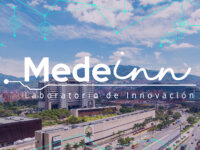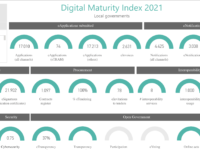MedeINN arose from the need to innovate in the government sector, in a city that had been developing its innovation capabilities in all other sectors. For this reason, and under Innovative State premise, we seek to connect the Mayor's Office of Medellín´s challenges with entrepreneurs and researchers capacities. This has been achieved after a redesign of a Public Procurement for Innovation methodology, which enables Open Innovation in the government sector.
Innovation Tag: Open Government
UK Government is investing in innovative public policy design expertise. Public policy design has been gathering momentum over the past 10 years. But 2022 was a landmark year for public policy design. For the first time, the UK’s government is sponsoring major networks that champion design as key for making policy and services that drive outstanding public value.
With the Quality Tools an organisation can evaluate, monitor and compare the quality and use of its services within and between organisations. The tools include a Self-assessment, Customer Feedback and Utilisation Rate Measurement tool and are free of charge. The tools were developed primarily for public sector organisations to help them develop customer-oriented digital services and improve knowledge-based management. On a national level the tools provide data on the state of digitalisation.
Case Study
Personalized feedback service for national qualification test result – Digital Mentor Service…

"Why did I fail? How should I develop my career?" To address such concerns, we developed the Digital Mentor Service of National Qualification. It leverages massive data on national qualification tests to identify each individual's weaknesses and why they fail. It also provides personalized information by matching examination history with jobs and training offered by government agencies. Supporting test takers from skills assessment and development to job placement.
Digital transformation is a long-term journey that involves complex changes. One of the challenges is how we evaluate the progress. We are inspired by the quote, "If you cannot measure it, you cannot improve it". Most of Catalonia's municipalities cannot do a digital assessment. The Digital Maturity Index provides an evaluation turnkey solution for local governments. It is based on open data, and it has a clear focus on public value impact.
The Center for Hybrid Intelligence (CHI) has with partners such as UN’s AI4Good and the Danish People Climate Summit piloted a new AI powered game, “Crea.visions,” which allows the general public to collaboratively create and reflect on images of possible futures. Such accessible crowdsourcing of the concerns and solutions of the general public on both global and local complex socio-scientific problems could form a cornerstone in participatory democracy in the digital age.
#MyFrance2022 is the largest online citizen consultation ever conducted by a public media in France. It allowed one million French people to express their priorities and to engage in direct conversation with the candidates in the run-up to the presidential election. This massive and unprecedented consultation sought to respond to the democratic urgency of placing the voice of citizens at the heart of political debates during a democratic crucial period like the presidential campaign.
Council to the street is an innovative strategy to strengthen democracy through citizen participation. It is a strategy that brings the city's institutions out to listen and respond to citizens in public spaces. Citizens identify their priority needs and requirements and in a public session the Council and the Mayor's Office respond to them. The citizens should be the overseers of the commitments reached in the space. During the process the citizenry is strengthened and accompanied.
In an increasingly digital world, Participa.gov represents our vision for civic participation in political decision-making processes. Participa.gov is the Portuguese Public Administration's centralized, cross-cutting platform for facilitating participatory processes at all levels of government. It employs cutting-edge technology to ensure that citizens can actively participate in policy decision-making via secure and transparent mechanisms that foster trust.
In the VUCA (volatility, uncertainty, complexity and ambiguity) world, the tasks of the government are interconnected and require cross-border collaboration and dialogue within ecosystems. However, one of the key challenges is the lack of knowledge and easy-to-deploy tools. As partners of Work2.0Lab (Työ2.0Lab), we co-created and implemented Ecosystem School 1.0. Its purpose was to develop ecosystem thinking, capabilities and tools to support phenomenon-oriented work within ecosystems.



